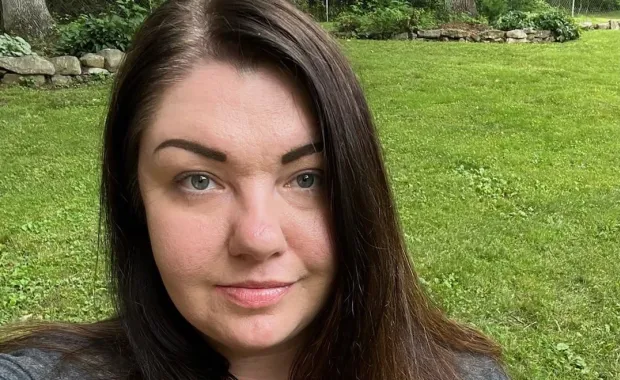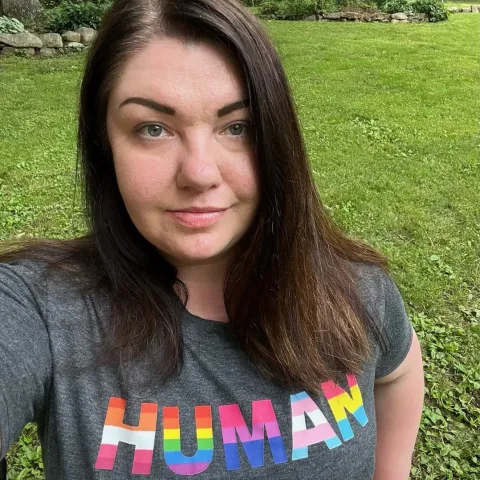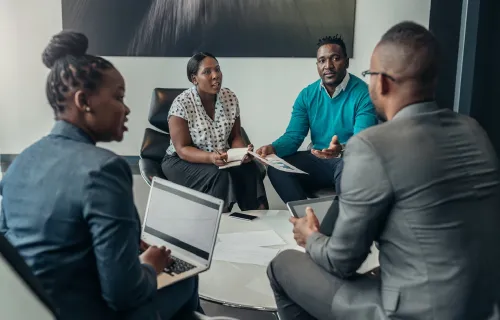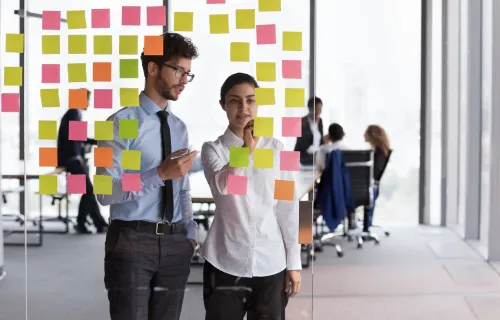In the U.S., 4.5% of the population identifies as lesbian, gay, bisexual, or transgender —an estimated 11 million LGBTQ+ people. Among those people, 42% of American lesbian gay and bisexual workers have experienced employment discrimination. For transgender Americans, that number soars to 90%.
For those of us who want to be allies to the LGBTQ+ community, helping eradicate discrimination and bias against them, those numbers are piercing. The 2020 Supreme Court ruling confirming that Title VII of the Civil Rights Act of 1964 bars employment discrimination against LGBTQ+ workers marked a major advancement, but much remains to be done says Sara Addison, a Strategic Engagement and Inclusion Manager at CGI.
One of the ways I have worked to create change is through the Pride@CGI Member Resource Group (MRG), which I helped establish in 2018. At the time, CGI only had one MRG, our Women’s Forum. I was in an HR operations role at the time, and dabbling in Diversity, Equity and Inclusion (DEI) efforts. A couple of other CGI members approached me about creating a safe space where CGI’s LGBTQ+ members could go if they had questions or needed support.
Personally, I have several close friends and colleagues who are part of the LGBTQ+ community, so I took pride in being an ally, supporting them in any way I could. They were often hesitant about how open they should be at work. Simple decisions that other colleagues never have to think about—would it be wise to bring their partner to a work event, for example—were, for them, difficult matters. This just didn’t sit right with me.
At the time, I had been with CGI for several years and despite the respectful and inclusive environment within the company, LGBTQ+ inclusion wasn’t something we were talking about as a company. I felt comfortable standing up as an ally and taking on a lead role in launching a group like Pride@CGI. So, we pitched the idea to CGI leadership and I was blown away by the support we received.
Knowing the company had our back, a small group started working on the details. After the launch of the MRG, I was elected to two terms as a board member and now, have the honor of being the next president of Pride@CGI, a position I will take in 2023. We’ve come a long way and I’m really excited to see what more we can accomplish going forward.
Building a community of allies
“Ally” is a verb as well as a noun. It’s one thing to say you support someone, but to truly show up is quite another. To be an ally, the first thing is to educate yourself and understand the issues facing the LGBTQ+ community. Also, it is crucial to make sure you are listening to—not assuming you know—what is best for a community or an individual.
The LGBTQ+ community is incredibly diverse, and for me, being an ally is all about learning, understanding the issues, and bringing that knowledge back to CGI to inform Pride@CGI’s goals and priorities, and in return, influence the company’s goals and priorities accordingly.
From the start, we wanted to make it clear Pride@CGI was not just for our LGBTQ+ members. Allies are an essential component—not just welcome but essential. It can be hard to stand up in a room and fight for yourself. Sometimes you need those who recognize their privilege and aren’t afraid to use it standing up next to you, advocating for you, even when you’re not in the room.
Currently, just under half of Pride@CGI members identify as allies, and they are very active in the group. These are folks who are attending events, donating to causes, asking questions and wanting to learn more. They are showing up for their colleagues and community, and I hope this encourages more LGBTQ+ members to feel safe and comfortable bringing their whole selves to work at CGI – you have a growing and mighty network of supporters behind you!
At CGI, we empower our members and groups like Pride@CGI to not only impact MRG members but our workforce as a whole. For example, we discovered that some of our benefits were not as inclusive as they needed to be, and when we raised our concern, the benefits team moved fast to make changes that met the industry standard.
In another situation, HR Business Partner colleagues approached me because they had transgender members who were transitioning at work, and they did not feel equipped to support them. In that moment, I realized there was an opportunity to create even more allies in our corporate services partners. Pride@CGI collaborated with our HR group to create training and a process document to better support our transgender members.
Allies should also speak up when other people act in a discriminatory way toward LGBTQ+ people. That includes misgendering someone or refusing to address someone by their preferred pronouns. (If you’re unsure what someone prefers, ask.) A subtle, but effective, way to show allyship is to list your own pronouns in your email signature. I added mine to my signature because I wanted members who use “they”/”them” or are often misidentified by their pronouns to see my support and begin to feel comfortable listing their own pronouns.
This prompted people to begin asking questions about why I listed them, which led to educational conversations about why pronoun usage is important. I can remember when just few of us uncomfortably started adding our pronouns to LinkedIn. Now, our CGI Federal President Stephanie Mango and other leaders are sharing their pronouns on LinkedIn, as well.
Perseverance
None of this is meant to imply that being an ally is easy. Sometimes, you will encounter resistance or foot-dragging. I urge you not to stop even when it seems like a lost cause. Creating a truly inclusive environment doesn’t happen overnight.
You might get frustrated when a group takes on a “new” initiative that you brought up three years ago. Sometimes, an organization isn’t quite ready; sometimes, leaders are just too busy with too many other priorities. Keep talking about the issues, keep pushing. Even if you don’t get credit for the change, revel in the fact that the change happened. Remember – as an ally it isn’t about you, it’s about the change you are making.
Lastly, as an ally, I want you know that if you don’t think you have someone who supports you at work, you’re wrong. You always have me.
Read more CGI member stories in the Life at CGI blog series.
Want to join us? Find your next opportunity at CGI Careers or join our talent network.






